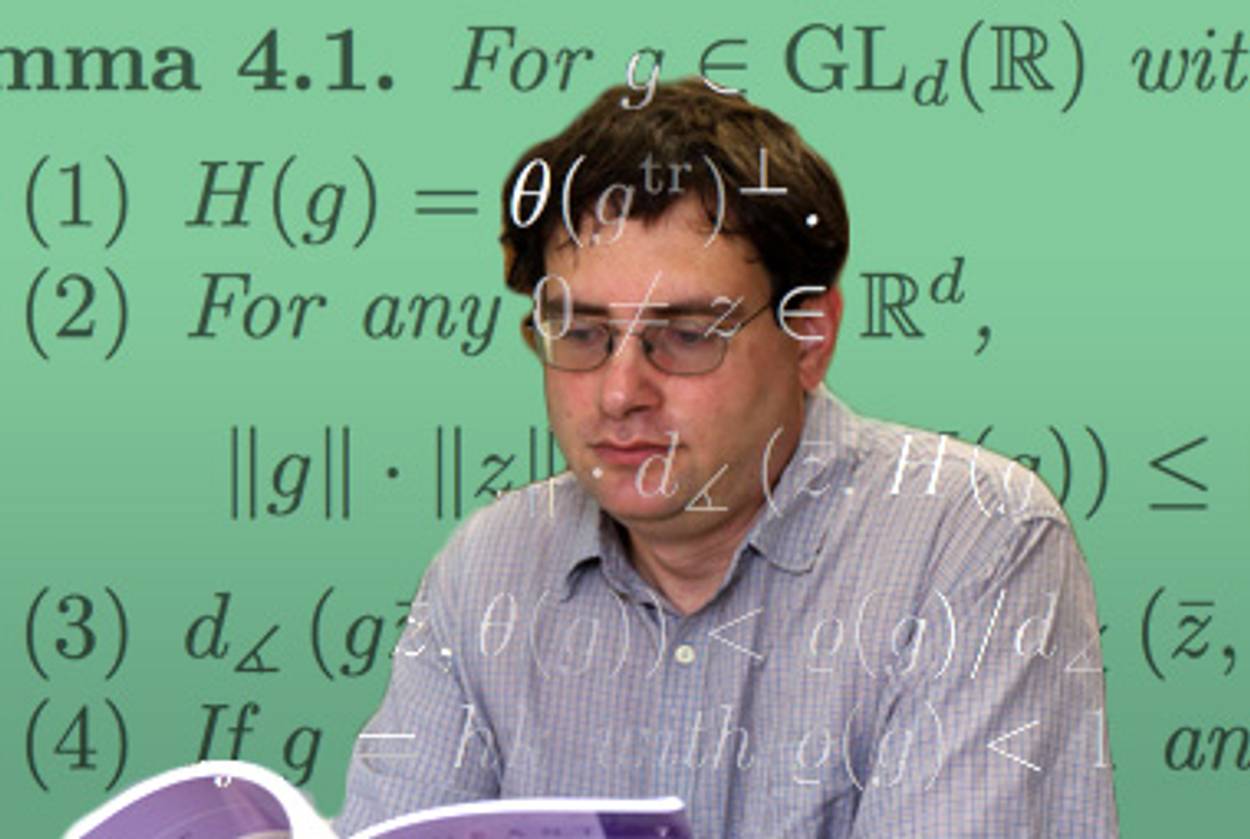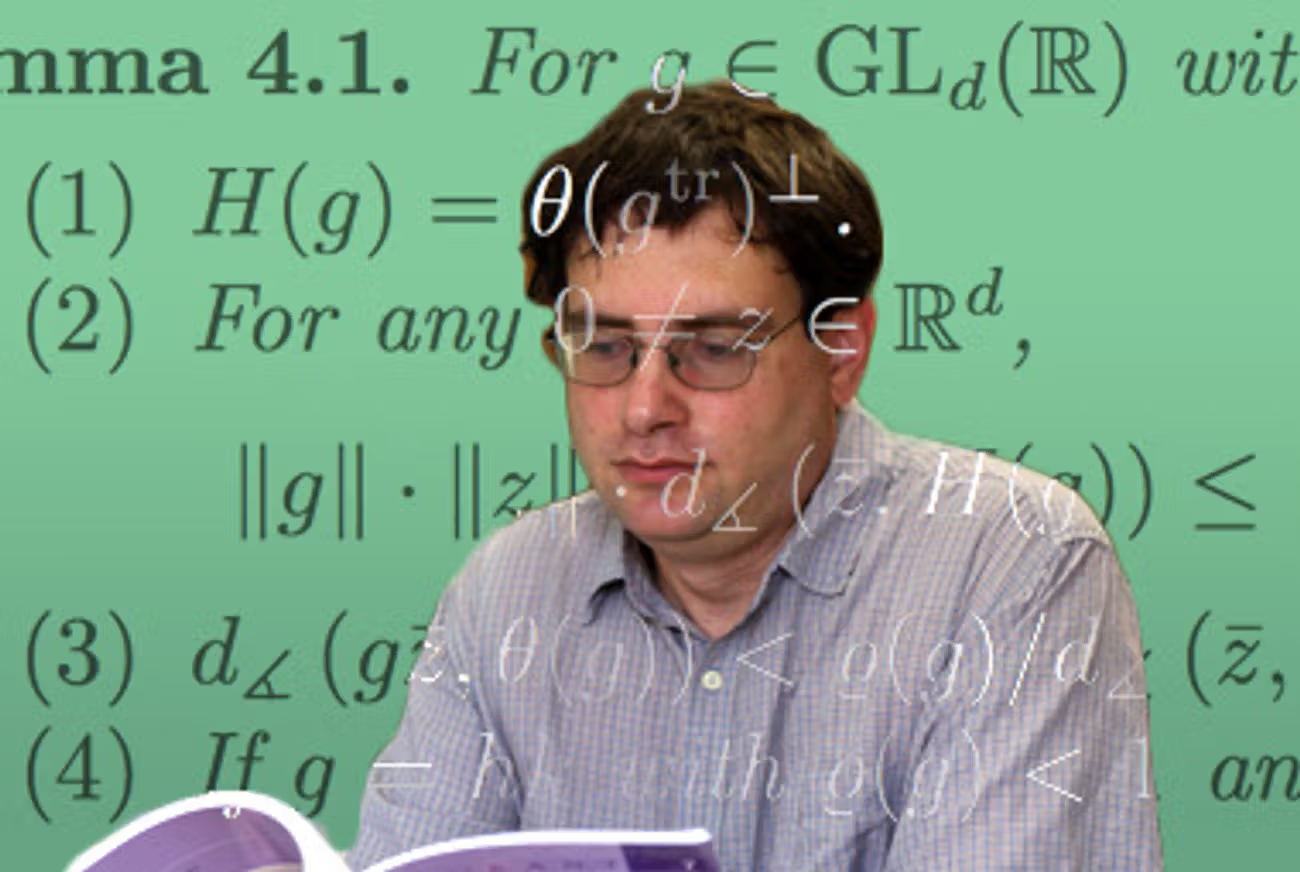Number Theory
Elon Lindenstrauss, the first Israeli to win a Fields Medal in mathematics, brought home a prize that marks Jewish achievement in the field




It’s summer, which for many is an excuse to not think about math. But summer is also when the International Congress of Mathematicians holds its quadrennial meeting, and at last year’s event Israel reached a milestone that received little attention: The group bestowed its highest honor, the Fields Medal—the equivalent of the Nobel prize for mathematics—on four recipients, including Elon Lindenstrauss of Israel. This was the first time a Fields Medal had gone to an Israeli-born mathematician.
That the Fields Medal eluded Israeli mathematicians until last year is surprising, as a large proportion of Fields Medal winners are of Jewish descent. Moreover, mathematical accomplishments have often served as an index for Jewish intellectual achievement: Albert Einstein used sophisticated geometry to reformulate the basic laws of physics; Edward Witten, a 1990 Fields Medal laureate, helped build a new conceptual basis for the physics known as string theory. More recently, Grigory Perelman, a Russian, won the Fields Medal for his proof of the famous topological problem known as the Poincaré Conjecture.
Indeed, mathematics has often seemed entwined with the thread of Jewish history. Archimedes, the greatest mathematician of antiquity, corresponded with a fellow scientist, Dositheus, believed by scholars to be Jewish, while the Old Testament makes implicit reference to pi, the value of the ratio of a circle to its diameter. Jewish mathematicians flourished in Germany and elsewhere in Eastern and Western Europe as liberal political reforms were instituted that allowed them to participate in academia.
Some idea of the centrality of mathematics in European Jewish cultural life can be gleaned from the fact that the Mendelssohns, the Benjamins, and the Weils all boasted prominent mathematicians, as well as composers and philosophers, in their family trees.
And Israel can trace its mathematical lineage to the era predating statehood. As though symbolically planting something of the mathematical spirit of the academic hub Göttingen in the soil of Mandate Palestine, the great number theorist Edmund Landau, visited Jerusalem before his abbreviated life of exile, speaking at the festivities celebrating the newly constituted Hebrew University. Abraham Fraenkel, the eponymous co-creator of the system of axioms commonly employed to serve as a logical foundation for mathematics, also made his way to the Hebrew University, becoming an important scholar and mentor there.
Even with early talents, Israeli mathematics has now long outgrown its formative years, having spawned several generations of homegrown researchers in the field. Fields Medal winner Lindenstrauss (who declined to be interviewed for this piece) is the son of mathematician Joram Lindenstrauss, an eminent figure in his own right. Robert J. Aumann, a colleague of Lindenstrauss’ in the mathematics department of Hebrew University, won the 2005 Nobel Prize in economics for his results in game theory. The depth of Israeli mathematics was showcased at the Congress of Mathematicians meeting in Hyderabad, India, where Israel was overrepresented among the lecturers chosen to address the gathering, a prestigious invitation in its own right.
“When you’ve been invited, you’ve really made it,” said Alex Lubotzky, a colleague of Lindenstrauss’ at the Einstein Institute of Hebrew University. “It also gives an idea of where the current leadership in mathematics is, and by that standard Israel ranks alongside traditional powerhouses such as the U.S., Britain, France, and Germany. In mathematics, Israel is a giant.”
Lubotzky attributes part of that success to Israel’s ability to retain a large number of the mathematicians who come up through its system. Notwithstanding the temptation of offers at leading institutions abroad, many of the best elect to stay in Israel. “It’s a cultural tradition,” Lubotzky said. “We learned Talmud for so many years without expecting it to be profitable. We studied because it was intellectually important.”
Lindenstrauss’ work, like that of many of the greatest mathematicians, has in part consisted of applying the results from one area, in this case the study of dynamical systems and their long-term behavior, to an apparently dissimilar branch of study, in this instance number theory, which aims to pin down various non-obvious relationships among numbers, particularly prime numbers.
Efim Zelmanov, a Russian-American Fields Medalist who often visits Israel, invokes the image of mathematics as a tower, as one must ascend from lower floors in order to advance to more sophisticated topics. “Elon is working in an incredibly abstract and complicated area, even for mathematics,” he said. “If math is a tower, he’s on one of the top floors, and the higher you get, the harder it is to explain.”
Roy Abrams has worked as a journalist and a communications consultant specializing in healthcare and pharmaceuticals.
Roy Abrams is a science writer in New York City.